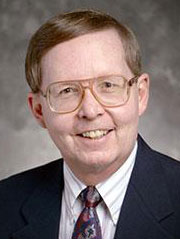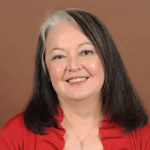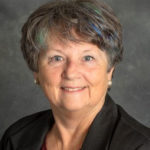AAG Wilbanks Prize for Transformational Research in Geography
The AAG Wilbanks Prize will not be issued for the 2024-2025 awards cycle.
The Wilbanks Prize is awarded to geographers from the academic, public, or private sectors whose research has made transformational research contributions to Geography or GIScience, or to Science and Society more broadly. Wilbanks Prize awardees will receive a cash prize of $2,000 and a statuette honoring the recipient.
Eligibility
All individual geographers are eligible to be nominated for or to apply for the Wilbanks Prize. As with all other AAG awards, eligibility also rests on the candidate being in compliance with the AAG Professional Conduct Policy. Nominations may be rescinded, and the award may also be revoked for any candidate or awardee who is found in violation of the AAG’s Professional Conduct Policy.
Criteria
The Wilbanks Prize for Transformational Research in Geography will be presented to those who have conducted truly transformative geographic research, specifically research which transformed geography, GIScience, and/or the world. The prize shall be made for transformative geographic research conducted in all sectors of geographical research, including in academia, the private sector, and government/NGOs. The Wilbanks Prize is issued for transformative research only; it is not given for service, education, or teaching.
Nominations
Nominations must be received by the deadline (Eastern Standard Time). Nominations for the Wilbanks Prize will include:
- the nominee’s resume or curriculum vitae;
- a concise (2,500 words maximum) yet specific nomination statement that describes the accomplishments that warrant selection according to the above criteria
- Submitting up to 3 letters of recommendation is strongly encouraged
The nomination statement and letters of recommendation should be original and focus solely on the nature and impact of the transformative research conducted by the nominee.
Starting in 2023, nominations will be considered for two consecutive years. Nominators may modify the nomination package for the second year if they wish to do so provided that the revised nomination is received by December 31. Nominators may withdraw a nomination for consideration in the second year provided that they notify the AAG at [email protected] by December 31.
Nominators who have questions should contact [email protected] or call the AAG at 202-234-1450.
Donations
Donations to the Wilbanks Prize for Transformational Research in Geography can be made at this link or by contacting Candida Mannozzi at [email protected] or 202-234-1450.
 The Wilbanks Prize for Transformational Research in Geography has been established in memory of the late Dr. Thomas (Tom) Wilbanks, a former AAG President and long-standing AAG member, who earned the admiration and respect of colleagues around the world for his many years of scholarship and research bridging the academic, public and private sectors.
The Wilbanks Prize for Transformational Research in Geography has been established in memory of the late Dr. Thomas (Tom) Wilbanks, a former AAG President and long-standing AAG member, who earned the admiration and respect of colleagues around the world for his many years of scholarship and research bridging the academic, public and private sectors.
Wilbanks was a groundbreaking scientist at Oak Ridge National Laboratory, where he conducted research and published extensively on sustainable development, energy and environmental technology and policy, responses to global climate change, and the role of geographic scale in addressing these issues.
AAG Wilbanks Prize for Transformational Research in Geography Recipients
Mauris non tempor quam, et lacinia sapien. Mauris accumsan eros eget libero posuere vulputate. Etiam elit elit, elementum sed varius at, adipiscing vitae est. Sed nec felis pellentesque, lacinia dui sed, ultricies sapien. Pellentesque orci lectus, consectetur vel posuere.

Qihao Weng
Qihao Weng, chair professor of geomatics and artificial intelligence at Hong Kong Polytechnic University and professor of geography at Indiana State University, and the director of Indiana State’s Center for Urban and Environmental Change has defined urban remote sensing as a new field and has transformed urban environmental research with theoretical and technical advances, including novel algorithms and innovative methods for sub-pixel-scale analysis and time series imagery. His research has significantly advanced our theoretical understanding and empirical knowledge of urban heat islands, urban sprawl, urbanization effects, and urban environmental sustainability. By establishing relationships among satellite thermal infrared imagery, land surface temperature, and air temperature, his research connects remotely sensed data to urban landscape patterns, radiation budgets, and climate change. His 2004 methodology for estimating land-surface temperature from satellite-derived attributes of vegetation, developed with Lu and Schubring, has had far-reaching impact in a range of fields, including urban geography, landscape ecology, urban planning, urban meteorology, and climatology.

2024 AAG Wilbanks Prize for Transformational Research in Geography
Qihao Weng
2024 AAG Wilbanks Prize for Transformational Research in Geography
Qihao Weng, chair professor of geomatics and artificial intelligence at Hong Kong Polytechnic University and professor of geography at Indiana State University, and the director of Indiana State’s Center for Urban and Environmental Change has defined urban remote sensing as a new field and has transformed urban environmental research with theoretical and technical advances, including novel algorithms and innovative methods for sub-pixel-scale analysis and time series imagery. His research has significantly advanced our theoretical understanding and empirical knowledge of urban heat islands, urban sprawl, urbanization effects, and urban environmental sustainability. By establishing relationships among satellite thermal infrared imagery, land surface temperature, and air temperature, his research connects remotely sensed data to urban landscape patterns, radiation budgets, and climate change. His 2004 methodology for estimating land-surface temperature from satellite-derived attributes of vegetation, developed with Lu and Schubring, has had far-reaching impact in a range of fields, including urban geography, landscape ecology, urban planning, urban meteorology, and climatology.

Audrey Kobayashi
Audrey Kobayashi, Queen’s University, has conducted transformative research on the intersectionality of gender, race, politics, and place. After initial studies of the experiences of Japanese immigrants in Canada, Kobayashi’s research expanded to examine the ways in which women and people of color encountered and responded to discrimination and other socially constructed barriers. Her theoretical work fostered expansion and integration of feminist and other critical approaches to the study of space, place and racialized landscapes, thereby refocusing geographic inquiry on the complex processes of identity formation, place formation, and inequality.
As one of the first feminist geographers to emphasize the intersectional nature of gender and race, she enhanced basic knowledge about the social and political construction of race in many contexts. Kobayashi also engaged with universities, governments, and other organizations to implement changes in how those institutions combatted racism and other forms of discrimination.
Her consistently innovative and socially relevant research has stimulated new modes of critical analysis and empirical study and helped address fundamental problems in academia and society.

2023 AAG Wilbanks Prize for Transformational Research in Geography
Audrey Kobayashi
2023 AAG Wilbanks Prize for Transformational Research in Geography
Audrey Kobayashi, Queen’s University, has conducted transformative research on the intersectionality of gender, race, politics, and place. After initial studies of the experiences of Japanese immigrants in Canada, Kobayashi’s research expanded to examine the ways in which women and people of color encountered and responded to discrimination and other socially constructed barriers. Her theoretical work fostered expansion and integration of feminist and other critical approaches to the study of space, place and racialized landscapes, thereby refocusing geographic inquiry on the complex processes of identity formation, place formation, and inequality.
As one of the first feminist geographers to emphasize the intersectional nature of gender and race, she enhanced basic knowledge about the social and political construction of race in many contexts. Kobayashi also engaged with universities, governments, and other organizations to implement changes in how those institutions combatted racism and other forms of discrimination.
Her consistently innovative and socially relevant research has stimulated new modes of critical analysis and empirical study and helped address fundamental problems in academia and society.

Mei-Po-Kwan
Mei-Po-Kwan, has had transformational impacts how transportation specialists and GIScientists think about accessibility and travel pattern analysis, how feminist geographers understand quantification and GIS, and how health geographers, public health researchers, and scholars in other disciplines think about environmental exposure and the significance of neighborhood. Dr. Kwan has dramatically altered geo-visualization, and she has broadened GIScience to include more humanistic standards such as perceptions, emotions and behavior as core patterns. She has also advanced the conceptualization of uncertainty and bias by examining spatial contexts as rooted in everyday behaviors and experiences, rather than as contaniers fixed in space and time. Dr. Kwan’s work has transformed the discipline of geography and GIScience and infused a more robust geospatial understanding in the broader community of researchers and practitioners.

2021 AAG Wilbanks Prize for Transformational Research in Geography
Mei-Po-Kwan
2021 AAG Wilbanks Prize for Transformational Research in Geography
Mei-Po-Kwan, has had transformational impacts how transportation specialists and GIScientists think about accessibility and travel pattern analysis, how feminist geographers understand quantification and GIS, and how health geographers, public health researchers, and scholars in other disciplines think about environmental exposure and the significance of neighborhood. Dr. Kwan has dramatically altered geo-visualization, and she has broadened GIScience to include more humanistic standards such as perceptions, emotions and behavior as core patterns. She has also advanced the conceptualization of uncertainty and bias by examining spatial contexts as rooted in everyday behaviors and experiences, rather than as contaniers fixed in space and time. Dr. Kwan’s work has transformed the discipline of geography and GIScience and infused a more robust geospatial understanding in the broader community of researchers and practitioners.

Billie Lee Turner
Billie Lee Turner, Arizona State University, has been a leader in the field of land use change and a strong advocate for geography at the national level. Dr. Turner’s research has been transformative in two distinct areas, united by a geographic approach to land use change. First, his earliest work on Pre-Hispanic Mayan agriculture established a major new research strand in geography and elevated geographic research on land-use and land use change to a significant area of anthropological research. Dr. Turner and his graduate students have continued to build a substantial body of Meso-American research in which they have deepened understanding of environmental context and broadened methodological approaches to grasping the underpinnings of agricultural change. Second, Dr. Turner’s research on land use and environmental change has been influential in creating the emerging field of land systems science as a major component of global change and sustainability research. Dr. Turner is a highly deserving recipient of the Wilbanks Prize, as he exemplifies utilizing new geospatial technologies to complement traditional geographic field studies in advancing theory and analyses of land use change.

2020 AAG Wilbanks Prize for Transformational Research in Geography
Billie Lee Turner
2020 AAG Wilbanks Prize for Transformational Research in Geography
Billie Lee Turner, Arizona State University, has been a leader in the field of land use change and a strong advocate for geography at the national level. Dr. Turner’s research has been transformative in two distinct areas, united by a geographic approach to land use change. First, his earliest work on Pre-Hispanic Mayan agriculture established a major new research strand in geography and elevated geographic research on land-use and land use change to a significant area of anthropological research. Dr. Turner and his graduate students have continued to build a substantial body of Meso-American research in which they have deepened understanding of environmental context and broadened methodological approaches to grasping the underpinnings of agricultural change. Second, Dr. Turner’s research on land use and environmental change has been influential in creating the emerging field of land systems science as a major component of global change and sustainability research. Dr. Turner is a highly deserving recipient of the Wilbanks Prize, as he exemplifies utilizing new geospatial technologies to complement traditional geographic field studies in advancing theory and analyses of land use change.

Susan Cutter
Susan Cutter, Carolina Distinguished Professor of Geography and Director of the Hazards
and Vulnerability Research Institute at the University of South Carolina.Dr. Cutter has made transformative, far-reaching research contributions to geography and the broader interdisciplinary research communities that focus on hazards and disasters. Her work led to development of the Social Vulnerability Index, the first nationwide empirical representation of social vulnerability. The Index is used in National Risk Assessment toolkit and by many other nations. She also pioneered the Baseline Resilience Indicators for Communities, a county-level assessment of disaster resilience; the Hazards of Place model of vulnerability, which analyzes the contributions of physical and social vulnerability to overall place vulnerability; and the Disaster Resilience of Place model, which identify place-based differences and measures progress towards resilient goals and outcomes.

2019 AAG Wilbanks Prize for Transformational Research in Geography
Susan Cutter
2019 AAG Wilbanks Prize for Transformational Research in Geography
Susan Cutter, Carolina Distinguished Professor of Geography and Director of the Hazards
and Vulnerability Research Institute at the University of South Carolina.Dr. Cutter has made transformative, far-reaching research contributions to geography and the broader interdisciplinary research communities that focus on hazards and disasters. Her work led to development of the Social Vulnerability Index, the first nationwide empirical representation of social vulnerability. The Index is used in National Risk Assessment toolkit and by many other nations. She also pioneered the Baseline Resilience Indicators for Communities, a county-level assessment of disaster resilience; the Hazards of Place model of vulnerability, which analyzes the contributions of physical and social vulnerability to overall place vulnerability; and the Disaster Resilience of Place model, which identify place-based differences and measures progress towards resilient goals and outcomes.

Alan MacEachren
Alan MacEachren, Professor of Geography and Director of the Hazards and Vulnerability Research Institute at the Pennsylvania StateUniversity and Director of the GeoVISTA Center. Dr. MacEachren has made transformative, far-reaching research contributions to geography, GIScience, and the broader interdisciplinary research communities that focus on information visualization and visual analytics. In his seminal 1995 book, How Maps Work: Representation, Visualization and Design, he developed a cognitive-semiotic theoretical perspective for dynamic representation that fostered the next generation of cartography, conceptualizing map making and reading as a process of knowledge construction itself. Dr. MacEachren’s recent work on geovisual analytics champions thinking about how humans can collaborate with computers to make sense of information needed to solve highly complex problems. His research advances our fundamental understandings in geography, computer science and related fields and has been employed in a broad range of domains, such as public health, crisis management, and environmental science.

2019 AAG Wilbanks Prize for Transformational Research in Geography
Alan MacEachren
2019 AAG Wilbanks Prize for Transformational Research in Geography
Alan MacEachren, Professor of Geography and Director of the Hazards and Vulnerability Research Institute at the Pennsylvania StateUniversity and Director of the GeoVISTA Center. Dr. MacEachren has made transformative, far-reaching research contributions to geography, GIScience, and the broader interdisciplinary research communities that focus on information visualization and visual analytics. In his seminal 1995 book, How Maps Work: Representation, Visualization and Design, he developed a cognitive-semiotic theoretical perspective for dynamic representation that fostered the next generation of cartography, conceptualizing map making and reading as a process of knowledge construction itself. Dr. MacEachren’s recent work on geovisual analytics champions thinking about how humans can collaborate with computers to make sense of information needed to solve highly complex problems. His research advances our fundamental understandings in geography, computer science and related fields and has been employed in a broad range of domains, such as public health, crisis management, and environmental science.

Douglas Richardson
In 2018 the Wilbanks Prize was awarded to Douglas Richardson for his research contributions to Geography, GIScience, and geographic technologies, which have transformed the discipline of geography, and science and society more broadly. Dr. Richardson was Founder and President of GeoResearch, Inc., which invented, developed and patented the first real-time interactive GPS/GIS mapping and data collection technology in the late 1980s and early 1990s. This technology is now central to the pervasive availability of what is now generally referred to as Big Data. As part of his leadership at the AAG, Dr. Richardson has developed research programs that advance the discipline in areas such as Geography and Health Research, Geographic Technologies and Sustainable Development, Space-Time Integration in GIScience, and Geography and the Humanities. Dr. Richardson has created new opportunities for geographers and GIScientists to play a role in health and medical research, and published these in the article titled “Spatial turn in health research” in Science in 2013. Doug Richardson embodies the ideals of Tom Wilbanks’ own research, which also spanned the public, private, and academic spheres.

2018 AAG Wilbanks Prize for Transformational Research in Geography
Douglas Richardson
2018 AAG Wilbanks Prize for Transformational Research in Geography
In 2018 the Wilbanks Prize was awarded to Douglas Richardson for his research contributions to Geography, GIScience, and geographic technologies, which have transformed the discipline of geography, and science and society more broadly. Dr. Richardson was Founder and President of GeoResearch, Inc., which invented, developed and patented the first real-time interactive GPS/GIS mapping and data collection technology in the late 1980s and early 1990s. This technology is now central to the pervasive availability of what is now generally referred to as Big Data. As part of his leadership at the AAG, Dr. Richardson has developed research programs that advance the discipline in areas such as Geography and Health Research, Geographic Technologies and Sustainable Development, Space-Time Integration in GIScience, and Geography and the Humanities. Dr. Richardson has created new opportunities for geographers and GIScientists to play a role in health and medical research, and published these in the article titled “Spatial turn in health research” in Science in 2013. Doug Richardson embodies the ideals of Tom Wilbanks’ own research, which also spanned the public, private, and academic spheres.